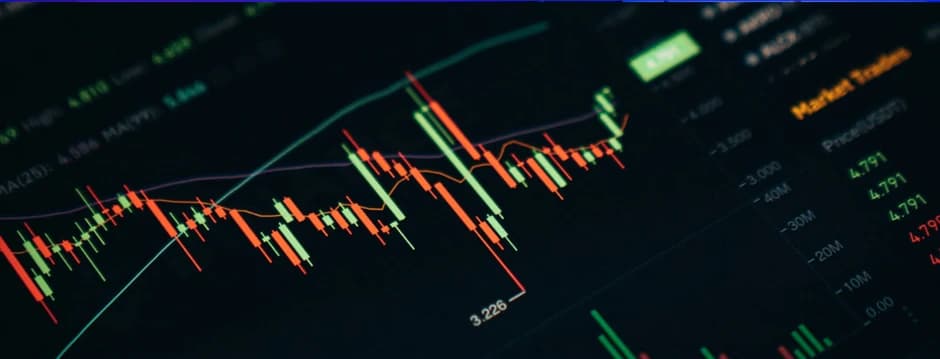Choosing a top forex broker is one of the most consequential decisions a trader makes. The broker is your point of access to global markets, and their conditions, tools, and reliability directly affect your trading experience. Whether you are opening your first fx trading account or looking to switch from your current provider, it’s important to evaluate brokers based on transparent criteria, not assumptions.
This article outlines the most important factors to consider before committing to a broker, without relying on brand names or generic sales language. It is structured to give practical guidance grounded in the actual mechanics of trading currencies.
Regulatory Compliance and Financial Safety
A broker’s regulatory status should be the first item on your checklist. Regulated brokers must adhere to financial standards that are intended to protect clients’ funds and create a more transparent trading environment. These requirements may include:
- Segregation of client funds from operational funds
- Regular audits by financial authorities
- Capital adequacy standards
To verify a broker’s regulatory status, visit the official website of the financial authority in their jurisdiction. If the broker claims regulation but doesn’t appear in the authority’s register, that’s a significant red flag.
You can also consult reliable industry sites like investopedia.com for explanations on what specific regulatory licenses mean and how they affect traders.

Trading Costs and Spreads
Trading costs affect your bottom line with every position you open or close. Brokers charge in one or more of the following ways:
- Spread-only model: The broker adds a fixed or variable markup to the bid-ask price.
- Commission plus spread model: A lower spread is offered, but a commission is charged per trade volume.
Consider these cost-related points:
| Cost Element | What to Check |
| Spreads | Fixed or floating, typical ranges |
| Commission | Flat rate or per-lot basis |
| Swap fees | Charges for holding positions overnight |
| Inactivity fees | Costs for dormant accounts |
Choosing a broker with lower spreads may look appealing at first glance, but be sure to review other fees in full.
Order Execution and Slippage
Execution speed is essential for short-term traders. Delays in order processing can lead to slippage, which is the difference between the price you expected and the price at which the trade was executed.
When comparing brokers, focus on:
- Average execution time (reported in milliseconds)
- Order rejection or requote rates
- Support for instant, market, or pending orders
Slippage tends to increase during high-volatility periods. Some platforms also offer settings to control or limit slippage. Execution statistics are sometimes published, but can also be found through independent reviews or verified data from sites like forexfactory.com.

Trading Platforms and Tools
The trading platform is your operational hub. It should offer stable performance, clear charting, and access to technical indicators. Support for third-party tools such as tradingview.com can add value for those who rely on multi-platform setups or external analytics.
Key features to evaluate include:
- Interface usability
- Charting and drawing tools
- Order management features
- One-click trading
- Platform availability (web, desktop, mobile)
If you’re looking for metatrader 5 download for pc windows 10, check whether the broker supports this version and whether custom indicators or EAs (expert advisors) are permitted.
Asset Availability and Market Access
The breadth of available instruments matters, especially for traders who diversify across currency pairs or expand into commodities and indices. Not all brokers offer the same instruments.
For example, if you’re planning to trade oil, you’ll want to confirm that crude oil futures or CFDs are available on their platform.
Ask yourself:
- Are major, minor, and exotic forex pairs supported?
- Are there other instruments like metals, indices, or crypto?
- What is the average spread and liquidity for those instruments?
Market depth and real-time order book access may also be available depending on the broker’s infrastructure.

Account Types and Minimum Requirements
Not all traders need the same type of account. Look at what account types are available and what they offer:
- Minimum deposit amounts
- Account currency options
- Support for micro, standard, or ECN accounts
- Whether swap-free accounts are available
If you’re testing the waters, an account with no minimum deposit and smaller trade sizes might be a better fit. On the other hand, more experienced traders may look for more flexibility or raw spreads.
Customer Support and Service Hours
Support quality should not be underestimated. Even if you rarely need it, when problems occur — especially with fund withdrawals or execution errors — good support makes a difference.
A reliable broker should offer:
- Multilingual support
- 24/5 or 24/7 availability
- Multiple contact channels (chat, email, phone)
- Quick response times
You can test this yourself by sending basic questions before opening an account. Assess how quickly and clearly they respond.
Deposit and Withdrawal Conditions
A broker may advertise low spreads and fast execution but restrict access to your own funds. Check the fine print for:
- Processing time for withdrawals
- Available methods (bank transfer, e-wallets, cards)
- Any internal fees applied per transaction
- Currency conversion charges, if applicable
Avoid brokers that impose long delays or require excessive verification beyond industry standards for withdrawals.
Transparency and Disclosures
A broker should provide clear information across its platform. Look for:
- Full disclosure of costs and terms
- Risk warnings and trading conditions
- A legal section with terms of use and privacy policy
- Clear dispute resolution procedures
If terms are vague or hard to find, consider that a warning sign. Trustworthy brokers tend to be open with their service terms.
Final Thoughts
Selecting a forex broker is not about choosing the most advertised or familiar name. It’s about aligning features, pricing, and execution with your specific trading style. Whether you prioritize low spreads, platform features, or availability of instruments, the criteria above will help you assess options objectively.
Keep your expectations practical. No broker is perfect in all areas, so choose one that fits your top priorities. Review your broker’s performance periodically, especially if your trading goals evolve. Always read the legal agreements before funding an account, and don’t rely solely on marketing materials.
An informed choice, based on evidence rather than branding, is your best safeguard in the forex market.
